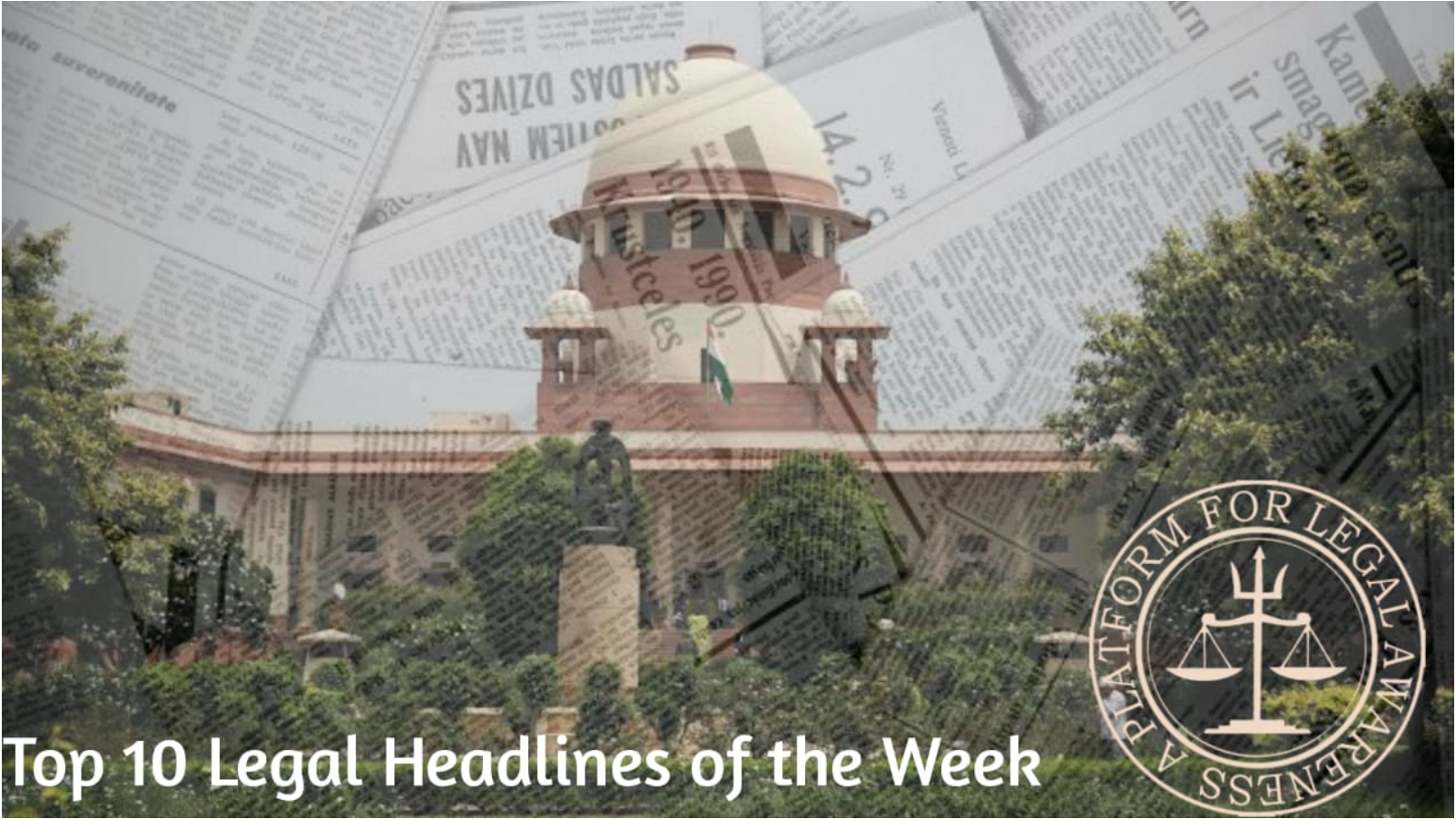1. Presence of victim, parents in court not obligatory in POCSO case appeals: Bombay High Court
The Nagpur Bench of the Bombay High Court clarified in the case of Rohit Bhagat v. State of Maharashtra that the presence of a child victim and her family is not compulsory during appeal proceedings under the Protection of Children from Sexual Offences Act (POCSO Act). Justice Anil Pansare highlighted that the relevant POCSO Rules don't mandate their presence in these appellate stages, offering a more nuanced perspective in handling such sensitive cases.
2. Calcutta High Court quashes Section 498A FIR by wife against husband, in-laws filed 19 years after marriage
In a recent case (Suman Kumar Das vs State of West Bengal), the Calcutta High Court, presided over by Justice Shampa Dutt (Paul), dismissed a cruelty case filed in 2010 against a husband and his family under Section 498A of the IPC. The court took into account the delayed FIR, filed 19 years into the marriage, and considered the nuanced dynamics involving dowry-related accusations and alleged pressure on the wife to divorce or contemplate suicide.
3. High Courts must prevent unwanted prosecutions, and long trials: Supreme Court
The Supreme Court, in Vishnu Kumar Shukla and Anr vs State of Uttar Pradesh, stressed that High Courts should avoid lengthy criminal trials due to baseless prosecutions. Justices Vikram Nath and Ahsanuddin Amanullah highlighted the injustice of subjecting an accused to a full trial without adequate suspicion. The court criticized the Allahabad High Court for not discharging the accused in a theft case despite doubts about the legitimacy of the complaint, emphasising the importance of fair and efficient legal proceedings.
4. Delhi High Court partially quashes money laundering probe by ED against real estate company director
In a recent case (Rajinder Singh Chadha vs Union of India Ministry of Home Affairs Through its Chief Secretary & Anr), the Delhi High Court partially quashed the Enforcement Directorate's (ED) investigation into a real estate company director accused of misusing funds from flat buyers. Justice Amit Sharma ruled that the ED cannot pursue its investigation concerning two FIRs from 2018 and 2019 since they have been quashed or compounded.
5. Litigants don’t have the right to hop between Allahabad and Lucknow benches, must stick to one forum: Allahabad High Court
In a tenant-landlord dispute, the Lucknow bench of the Allahabad High Court, in Prem Prakash Yadav v. Union of India, emphasized that litigants can't freely switch between benches for the same matter. The court addressed the challenge to the maintainability of a petition by a practising advocate who had previously filed similar petitions in the Allahabad bench. Justices Vivek Chaudhary and Manish Kumar highlighted the need for a more reasoned approach to prevent litigants from filing petitions on the same subject matter before different benches.
6. Need new theories to govern free speech in the era of fake news on the internet: CJI DY Chandrachud
Chief Justice of India DY Chandrachud, in the 14th Justice VM Tarkunde Memorial Lecture, stressed the necessity for new theoretical frameworks to regulate free speech on the internet, especially on social media. He expressed concerns about troll armies and organized disinformation campaigns leading to a distortion of truth, citing examples during the COVID-19 pandemic. This underscores the importance of thoughtful approaches to tackle challenges in the digital era.
7. India - Pakistan Basmati rice IP dispute: Delhi High Court closes Pakistani lawsuit for non-prosecution
The Delhi High Court recently dismissed a 15-year-old suit by Pakistani entities against India's export of 'Super Basmati' rice. The suit, filed by the Trading Corporation of Pakistan, Rice Exporters Association of Pakistan, and Basmati Growers Association in 2008, sought an injunction against India's use of the term, claiming it constituted passing off and diluted their trans-border reputation. Justice Prathiba M Singh noted a lack of appearance on behalf of the plaintiffs since 2020 and ineffective prosecution of the suit.
8. Cannot continue mobile internet ban in entire State: Manipur High Court
The Manipur High Court emphasized the importance of internet services as part of freedom of speech, criticizing the State government for extending the mobile internet ban until December 3 in the entire state. Despite the court's earlier directive to restore services in areas unaffected by violence, the government has not fully complied. The court had previously directed the State to trial mobile towers in unaffected District Headquarters and assess the feasibility of restoring internet services in Greater Imphal.
9. Supreme Court to examine whether a woman can be booked for rape under Section 375 IPC
The Supreme Court questioned whether a woman can be accused in a rape case under Section 375 of the Indian Penal Code. This arose in a case where a 62-year-old widow claimed false implication in a rape case against her son. The petitioner's counsel argued that women are excluded from the definition of rape, and thus, cannot be charged. The Court, with Justices Hrishikesh Roy and Sanjay Karol, expressed doubts during the hearing.
10. The state cannot keep the Pollution Control Board Chairman post vacant beyond six months: Karnataka High Court
The Karnataka High Court ruled in Dr Shanth. A. Thimmaiah v. The Government of Karnataka that the State cannot appoint its functionaries as Chairman of the Karnataka State Pollution Control Board beyond six months in case of a vacancy. Emphasizing the prompt filling of vacancies, the court directed the State to revise guidelines for the selection and appointment of the KSPCB Chairman.

